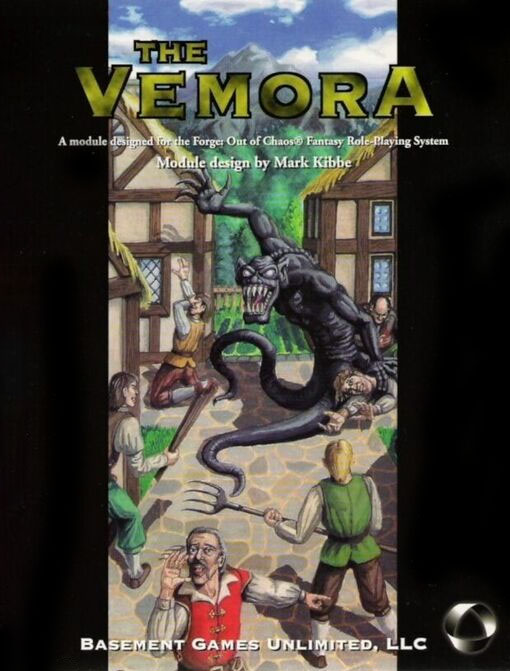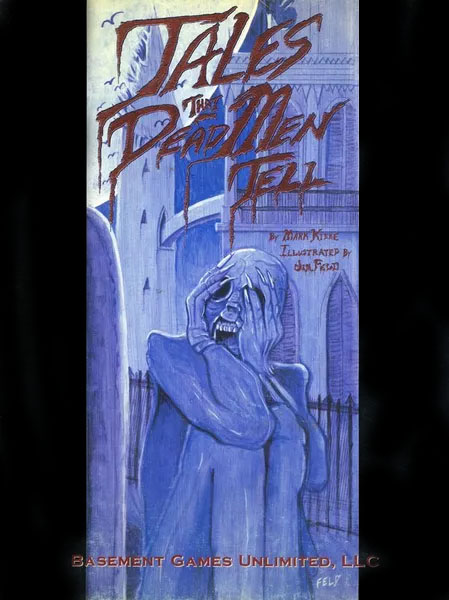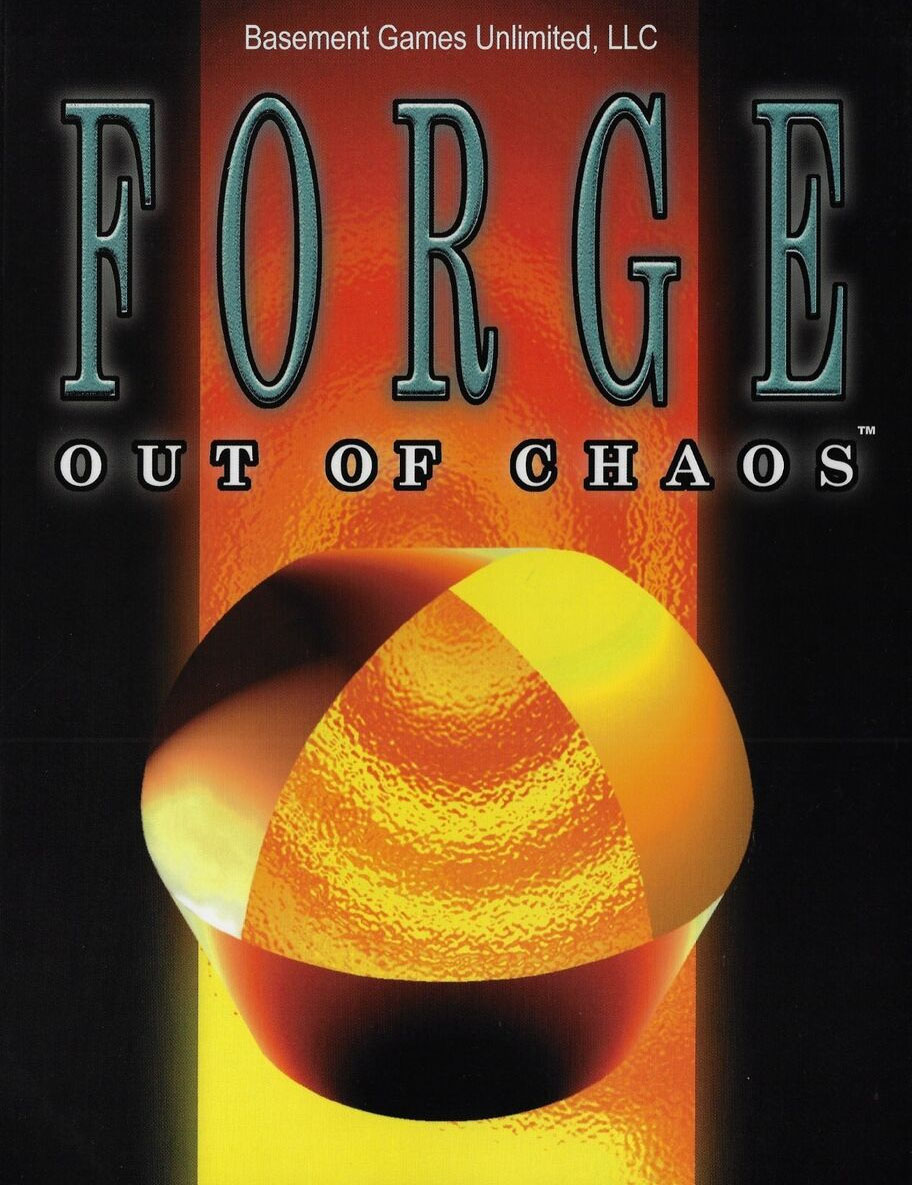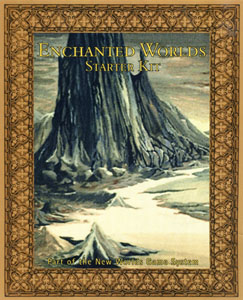
Review Originally Published January 15th, 2001
The Vemora is a short module for Forge: Out of Chaos supposedly designed not only for beginning adventurers, but beginning players – containing “explanations and guidelines through the text for the first-time Referee to follow.” I have yet to figure out what these “explanations and guidelines” are supposed to be, because the entire module looks exactly like an old-style D&D module.
The “plot” goes something like this: The PCs arrive in a small town. They are told that the town guard has been blinded by an attacking group of monsters. In order to heal the guards, the town needs to find the Vemora – a great healing artifact which was lost many years ago when the underground Thornburg Keep was devastated by a plague. The PCs go into the keep/dungeon, beat up on some monsters, find the Vemora behind a secret door, and go away happy with a bunch of treasure and a rather nice reward.
This is a village, mind you, which is described in four sections: The Blacksmith, The Supply Store, The Temple of Shalmar, and The Drunken Dragon (bar).
In short, the cliches run thick on the ground, the pre-written dialogue would make your players’ ears bleed if you ever dared to utter its stilted clauses, and the artwork will make your eyes bleed (having dipped from the rulebook’s mediocre quality into the truly pathetic).
Writers: Mark Kibbe
Publisher: Basement Games Unlimited, LLC
Price: $7.95
Page Count: 26
ISBN: 1-892294-01-X
Product Code: BGU1002

Tales That Dead Men Tell is, at face value, a far more substantial value than The Vemora: Background information is given on the Kingdom of Hamsburg and the Province of Lyvanna, along with some regional political history – and the adventure does a fairly sophisticated job of hooking the local events which make up the adventure into the larger political affairs of the world.
The plot, in brief: A decade ago the Kamon family was charged with high crimes against the Province of Lyvanna. When the soldiers came to arrest them, however, something went wrong – the household guard became agitated, and the evening ended in disaster: Kamon was executed, his wife arrested, his children missing or dead. Kamon Manor was left abandoned.
But then, years later, the bells of the Manor begin to ring again. Graves are found opened. And the guardsmen sent to investigate never return.
Enter the PCs.
Unfortunately, what is set up as a really top-notch horror adventure degenerates rapidly into a standard dungeon crawl: The PCs move into the manor/dungeon and commit a mop-up operation on a group of necromancers who have moved in to search for some sort of hidden treasure on the property.
Some products have a really good setup, but then don’t quite manage to get the dots connected just right. Tales That Dead Men Tell has a really good set up… but manages to miss the target by the length of a battlefield.
Writers: Mark Kibbe
Publisher: Basement Games Unlimited, LLC
Price: $9.95
Page Count: 44
ISBN: 1-892294-02-8
Product Code: BGU1003
Past me was definitely unimpressed with these adventures, which I received as review copies alongside the core rulebook for Forge: Out of Chaos. If you’d like to see a more positive review of The Vemora, you can find one here (including notes on converting the adventure to other systems and some light remixing).


 If there is one place where the would-be RPG publisher goes wrong, it is when they think like an amateur instead of a professional.
If there is one place where the would-be RPG publisher goes wrong, it is when they think like an amateur instead of a professional.









